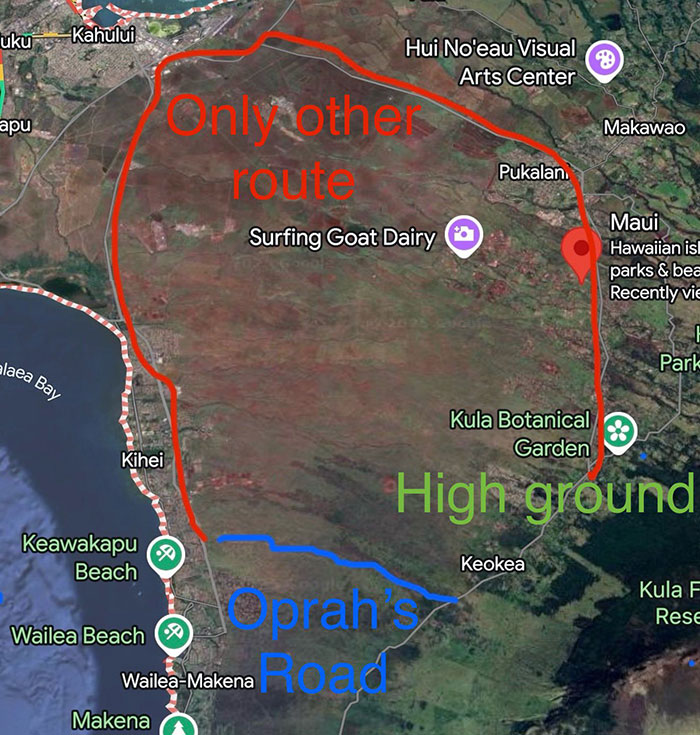A massive 8.8-magnitude earthquake off Russia’s Far Eastern coast has triggered tsunami warnings across the Pacific, prompting urgent evacuations in multiple countries. From Japan to Alaska, Hawaii, and even as far south as New Zealand, residents were told to seek higher ground as a precaution against potential tsunami waves. But in Maui, Hawaii, one particular evacuation route—and its alleged closure—has put Oprah Winfrey in the middle of an unexpected controversy.

Early Wednesday morning, the powerful earthquake struck near Russia’s Kamchatka Peninsula, shaking buildings for several minutes and causing localized damage. Russian authorities reported flooding at a fish processing plant, boats swept away from docks, and structural damage to a kindergarten, though no serious injuries or fatalities were reported. The quake’s sheer force reminded many of the devastating 2011 Japan earthquake and tsunami that claimed nearly 20,000 lives.
In Hawaii, Governor Josh Green issued statewide alerts instructing residents to leave low-lying coastal areas immediately. On Maui, where Oprah owns a sprawling ranch, videos began circulating online showing long traffic jams as residents attempted to evacuate. One viral clip showed a gated road, with police standing guard, as a passenger in a car shouted, “Oprah, save us!” The implication was clear: a private road owned by Oprah could have provided a faster escape route, yet it remained closed.
Social media users quickly seized on the claim, accusing the media mogul of being selfish during a life-threatening emergency. Hashtags trended, with some calling her “evil” for allegedly prioritizing privacy over public safety. Others demanded authorities force the gates open if lives were at risk. Memes and tweets poured in, with one user predicting, “Oprah, you’re about to trend in the worst way.”

But as with many viral controversies, the truth is murkier than it first appeared. Reports from Maui’s 2023 wildfires noted that “Thompson Road,” which cuts through Oprah’s property, is technically a public road running through private land. In past emergencies, Oprah reportedly granted immediate access to county officials to help first responders. Some users online claimed this time was no different, posting photos allegedly showing cars driving on the road later that same day. Even the person who first accused Oprah of blocking access eventually updated their post, saying the road had been opened for evacuations.
Despite this, the initial accusation spread faster than corrections, leaving many questioning why a private road would be gated during a mass evacuation in the first place. Critics argued that in an emergency, every available route should be accessible to save lives. Supporters countered that the chaos of social media can unfairly vilify public figures before facts are verified.
Meanwhile, tsunami waves have already reached parts of Hawaii. On O‘ahu, home to Honolulu, waves up to four feet were recorded. Midway Atoll saw even larger six-foot waves, though no severe damage was reported. Governor Green confirmed all flights in and out of Maui were canceled as a precaution but stressed there had been no “waves of consequence” so far. Residents were urged to stay away from coastlines until authorities declared the all-clear.
The incident has sparked a broader debate about private property rights versus public safety during natural disasters. It also serves as a sobering reminder of the dangers Pacific nations face when earthquakes strike, with memories of Japan’s 2011 disaster still fresh in many minds. While the Oprah road controversy may fade as more details surface, it highlights how quickly panic and speculation can spread online during a crisis—and how high the stakes can be when minutes matter in an evacuation.





